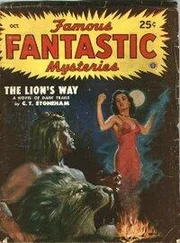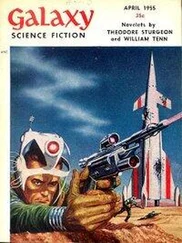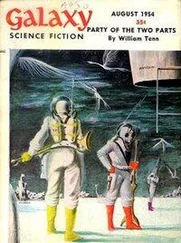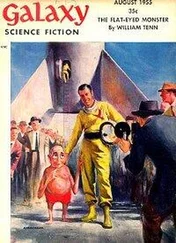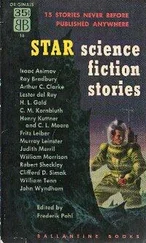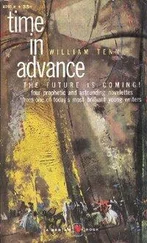William Tenn - The Lemon-Green Spaghetti-Loud Dynamite-Dribble Day
Здесь есть возможность читать онлайн «William Tenn - The Lemon-Green Spaghetti-Loud Dynamite-Dribble Day» весь текст электронной книги совершенно бесплатно (целиком полную версию без сокращений). В некоторых случаях можно слушать аудио, скачать через торрент в формате fb2 и присутствует краткое содержание. Год выпуска: 1968, Издательство: Ballantine, Жанр: Фантастика и фэнтези, на английском языке. Описание произведения, (предисловие) а так же отзывы посетителей доступны на портале библиотеки ЛибКат.
- Название:The Lemon-Green Spaghetti-Loud Dynamite-Dribble Day
- Автор:
- Издательство:Ballantine
- Жанр:
- Год:1968
- ISBN:нет данных
- Рейтинг книги:4 / 5. Голосов: 1
-
Избранное:Добавить в избранное
- Отзывы:
-
Ваша оценка:
- 80
- 1
- 2
- 3
- 4
- 5
The Lemon-Green Spaghetti-Loud Dynamite-Dribble Day: краткое содержание, описание и аннотация
Предлагаем к чтению аннотацию, описание, краткое содержание или предисловие (зависит от того, что написал сам автор книги «The Lemon-Green Spaghetti-Loud Dynamite-Dribble Day»). Если вы не нашли необходимую информацию о книге — напишите в комментариях, мы постараемся отыскать её.
The Lemon-Green Spaghetti-Loud Dynamite-Dribble Day — читать онлайн бесплатно полную книгу (весь текст) целиком
Ниже представлен текст книги, разбитый по страницам. Система сохранения места последней прочитанной страницы, позволяет с удобством читать онлайн бесплатно книгу «The Lemon-Green Spaghetti-Loud Dynamite-Dribble Day», без необходимости каждый раз заново искать на чём Вы остановились. Поставьте закладку, и сможете в любой момент перейти на страницу, на которой закончили чтение.
Интервал:
Закладка:
The Lemon-Green Spaghetti-Loud Dynamite-Dribble Day
by William Tenn
Testimony of Witness No. 5671 before the Special Presidential Investigative Commission. Leonard Drucker, thirty-one years old, unmarried, of 238 West 10 thStreet, New York City, Borough of Manhattan, employed as a salesman by the Har-Bern Office Partition Company of 205 East 42 ndStreet, New York City, Borough of Manhattan. Witness, being placed under oath, does swear and depose:
Well, I don’t know, the telephone woke me up about eight A.M. on that Wednesday morning. I grabbed at it, half falling out of bed, and finally managed to juggle it up to my ear. A girl’s voice was saying, “Hello, Lennie? Is that you, Lennie? Hello?”
After a couple of seconds, I recognized the voice. I said, “Doris? Yeah, it’s me. What’s the matter?”
“You tell me, Lennie!” She sounded absolutely hysterical. “Have you been listening to the radio? I called up three people already and they’re just as bad as the radio. You sure you’re all right?”
“I’m fine. Hey, it’s eight o’clock—I had another fifteen minutes sleep. And my coffee—it’s in the percolator. Let me turn the—the—”
“You too!” she screeched. “It’s affected you too! What’s the matter with everybody? What’s happening?” And she hung up.
I put down the phone and shuddered. Doris was a girl I’d been seeing, and she’d looked very normal. Now it was obvious she was just another kooky Village chick. I may live in the Village, but I hold down a good job and I dress conservatively. Usually, I stay far away from kooky Village chicks.
There was no point in going back to sleep, so I flipped the switch gizmo on my electric percolator and turned it on. That, I guess, is the crucial part of this testimony. You see, I always set up my coffee percolator the night before and fill it with water. When I get up in the morning, I’m too blind and dopey to cook anything.
Because of Doris’s call, I also flicked on the radio before I went into the bathroom. I splashed some cold water on my face, rinsed out my toothbrush, and put some toothpaste on it. It was halfway to my mouth when I began listening to the radio. I put it down on the sink and went out and sat next to the radio, really fascinated. I never brushed my teeth: I was one lucky son of a bitch all around.
The radio announcer had a warm, sleepy voice. He was enunciating carefully: “…forty-eight…forty-nine… forty! Forty-one…forty-two…forty-three…forty-four…forty-five…forty-six…forty-seven…forty-eight…forty-nine… forty! Forty-one…”
I stayed with that voice, I don’t know, for a long time. It didn’t ever get up to fifty. The coffee had finished perking, so I poured myself a cup and sat and twirled the dial. Some of the stations—they were the Jersey ones, I found out later—sounded pretty much as usual, but most of the broadcasts were wild. There was a traffic report, I remember, that just gripped me.
“…and on the Major Deegan Expressway, traffic is moderate to spaghetti-loud. All dynamite-dribbles are reported moving smoothly. The Cadillacs are longer, the Continentals are thinner, and the Chrysler Imperials have mostly snapped in two. Five thousand Chevrolet convertibles are building a basketball court in one uptown lane of the Franklin D. Roosevelt Drive…”
While I was having another cup of coffee and some cookies, I happened to glance at my watch, and I realized almost an hour had slipped by with that damn radio! I gave myself a one-two-three shave with the electric razor, and started dressing frantically.
I thought of calling Doris back to tell her she was right, but I thought, better not, better get to work first. And you know something? I never saw or heard from Doris again. I wonder what happened to her on that day. Well, she wasn’t the only one. Right?
There was hardly anyone on the street, just a few people sitting on the curb with funny expressions on their faces. But I passed that big garage between my apartment house and the subway station, and there I stopped dead. It’s one of the most expensive car hangars in the Village and it looked like, I don’t know, a junkyard soufflé.
In the dimness, I could see cars mashed against cars, cars mashed against walls. Broken glass mixed in with strips of torn-off chrome. Fenders ripped off, hoods sprung open and all twisty.
Charlie, the attendant, came dragging out of his cubicle and kind of grinned at me. He looked as if he’d tied one on last night.
“Wait’ll your boss sees this,” I told him. “Man, you’ll be dead.”
He pointed at two cars locked together nose to nose near the entrance. “Mr. Carbonaro was here. He kept asking them to go on making love. When they wouldn’t, he said to hell with them, he was going home. He was crying just like a milk bottle.”
It was turning into one weird morning. I was only half surprised when there was no one on duty in the subway change booth. But I had a token on me. I put it in the turnstile and clunked through.
And that’s when I first began to get scared—on the platform of the subway station. Whatever else is going on in the world, to a New Yorker the subway is a kind of man-made natural phenomenon, routine and regular as the sun coming up. And when the routine and regularity stop in the subway, you sure as hell notice it.
Like the guy on his hands and knees at one end of the platform staring up a woman’s dress, she rocking on high heels and singing a song to the ceiling. Or this pretty young Negro girl, sitting on a wooden bench, crying her heart out and wiping her eyes with great big newsprinted sheets of that morning’s Times. Or the doctor-lawyer type miming a slalom in and out of the iron pillars of the platform. He was chanting, “Chug, chug, chug-azoom, chug, chug, chug-azoom.” And nobody in the station being startled, or even looking worried.
Three trains in a row came in and went right on through without stopping, without even slowing down. The engineer of the last one was a big, white-haired guy who was laughing his head off as he flashed past. Then a fourth train came in, and this one stopped.
Only two of us on the platform made a dash for it: me and a young fellow in khaki pants and a brown sweater. The doors opened and shut, zip-zip, practically in the same motion. The train took off without us.
“What’s going on?” the young fellow whined at me. “I’m late for work—I had to run out of the house without any breakfast. But I can’t get a train. I paid my fare. Why can’t I get a train?”
I told him I didn’t know, and I left him and went upstairs. I was very scared. I got into a phone booth and tried to call my office. The phone rang for a long time: no answer.
Then I wandered around on that corner near the subway station for a while, trying to decide what I should do next, trying to figure out what was happening. I kept calling the office. No luck. That was damn funny—it was way after nine o’clock. Maybe no one at all had come in today? I couldn’t imagine such a thing.
I began noticing that the people going by on the street had a funny sort of stare, a kind of pop-eyed, trancy look. Charlie, the garage man, he’d had it. But the kid in the brown sweater on the subway platform, he didn’t have it. I saw a mirror in a store window and looked at myself. I didn’t have it.
The store was a television repair place. They had a television set in the window, tuned into a program, and I got all involved in watching it. I don’t know what the program was—two men and a woman were standing around talking to each other, but the woman was doing a slow strip. She was talking and peeling off her clothes at the same time. She had trouble with the garter belt and the men helped her.
Читать дальшеИнтервал:
Закладка:
Похожие книги на «The Lemon-Green Spaghetti-Loud Dynamite-Dribble Day»
Представляем Вашему вниманию похожие книги на «The Lemon-Green Spaghetti-Loud Dynamite-Dribble Day» списком для выбора. Мы отобрали схожую по названию и смыслу литературу в надежде предоставить читателям больше вариантов отыскать новые, интересные, ещё непрочитанные произведения.
Обсуждение, отзывы о книге «The Lemon-Green Spaghetti-Loud Dynamite-Dribble Day» и просто собственные мнения читателей. Оставьте ваши комментарии, напишите, что Вы думаете о произведении, его смысле или главных героях. Укажите что конкретно понравилось, а что нет, и почему Вы так считаете.

